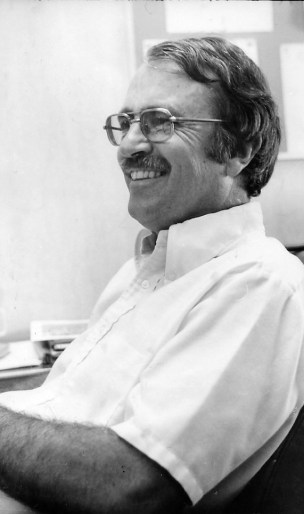
By Jef Rietsma
Fate seemed to work against Jack Page and any possibility that he would end in a successful career at Lee Paper Mill. It wasn’t in his sights.
It took a while and an extraordinary number of paths before Page landed a job at the Vicksburg plant.
After graduating from Kalamazoo Central High School, Page never debated his next destination. It was the early 1950s and jumping into the labor force was a popular option for many of Page’s classmates.
“But I enrolled at Michigan State and went on to graduate from there,” Page said. “No regrets at all.”
With his bachelor’s degree in hand, Page again found himself at a crossroads. He opted to join the Army and subsequently fulfilled a two-year ROTC commitment.
Then, finally, Page moved into the labor force. But he was still one job and another military commitment from ending up at the Vicksburg mill.
“I wound up getting a job at Proctor and Gamble, obviously unaware that I wouldn’t be there very long,” he said. “When the Berlin Crisis (of 1961) started to become a pretty major situation, I was called back to the Army and that effectively ended my time at P&G.”
Page’s wife, Liz Harper Page, grew up on a farm in Brady Township.
With college, two military stints and a white-collar job under his belt, Page said he and his wife decided the time was right to return to Kalamazoo County, where he would seek employment to complement his business degree.
A chance encounter one day with his wife’s uncle proved to be a life-changing experience.
“Her uncle, Meredith Clark, ran the newspaper in Vicksburg and he told me Lee Paper just merged with Simpson Paper, and they were apparently buying another mill,” Page said. “He suggested I go over and talk to them about a job.”
Page said he had nothing to lose. He went to the sprawling complex “cold turkey.” As if it happened last week, Page recalled with great detail the series of events that followed.
“Lloyd Campbell was the personnel manager at the time and he hemmed and hawed and said they weren’t really hiring right now. Still, he had me go in and talk to Max Bardeen, who was the mill manager and stockholder of Lee Paper Co. at the time,” Page said. “One thing led to another and they hired me. Max told me they’d put me in a training job, so I ended up going to work for them.”
That off-the-cuff statement from his wife’s uncle, the subsequent conversation with Campbell and unconventional interview with Bardeen would set Page on a 28-year journey with Lee.
He worked in the lab for a while and acquired a basic understanding of the role. Page conceded he had no expertise in paper and its production, but was eager to learn and had the benefit of solid mentors.
“My intent was to get into sales, and I ended up following Bob Millard,” Page said. “He was the head of inside sales and then he moved up to mill manager, so I took over his job as head of inside sales.”
It was the 1960s and Lee was on solid footing. Page said as it bought other mills, Lee broadened to the point that a collection of five plants east of the Mississippi River became known as the Eastern Service Center. The plants Lee owned were in Michigan, Ohio, Pennsylvania, New York and others.
Page eventually ascended to the role of manager of the Eastern Service Center. It entailed all inside sales, production control, production scheduling and traffic.
“My office was in Vicksburg but I traveled a fair amount … lots of trips to our company headquarters in San Francisco,” he said. “When I started there, we owned two mills and then they kept buying mills and expanding. Plainwell was our last acquisition while I was there.”
The Eastern and Western Service Centers were consolidated in 1989 to the West Coast, where they were centered in Redding, Calif. Seventeen Vicksburg area families moved out there.
Page and his wife were a part of that 17-member group, but their stay in California wound up being a short-lived experience. Page retired about 18 months later, and he and his wife moved back to Michigan, settling in a home on Indian Lake.
Echoing the comments of many of his peers, Page said the end of Lee was sad not only for the community, but for the paper industry. Recalling the mill’s earliest days and later its formative years, Page said there was a rich Polish element and other ethnic groups that embraced and demonstrated an admirable work ethic. That dedication, he said, was not limited to just the blue-collar workers but Lee’s employees from the bottom up.
“It was a good ride; we had a lot of fun working there and there were a lot of good friendships established there,” he said, noting he still meets monthly with Millard and a group of former employees over breakfast. “It was a small company and everybody knew each other. We had a good sales force, good marketing, a strong, strong group of laborers.”
Page said Chris Moore, who is behind an ambitious plan to redevelop the mill into a multi-use site, is someone he’s known for decades. He is aware that Moore has set in motion an ambitious plan to reenergize the mill into a development that will include a brew pub.
“Chris is an interesting person … I give him a lot of credit for what he’s doing,” Page added. “I’ll never live long enough to see the finished project, but what a venture he has drawn up. It’s very exciting and every aspect of what is proposed has my full endorsement, for what it’s worth.”
The next edition will feature Don Ulsh.
